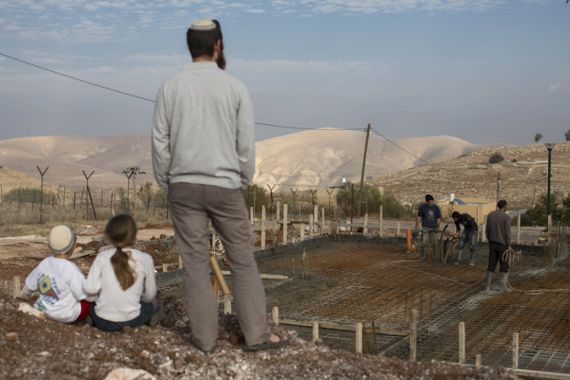2014: A new beginning for the Arab Spring?
Hopes are high for a fresh wave of Arab awakening in the new year.

The fragmentation that is taking place in countries that experienced the so-called “Arab Spring” brought me nearly to the brink of hopelessness.
As 2014 sets in, however, it cannot, and should not, be as disappointing as the passing one. While I will explain briefly the reasons for the breakdown of the hopes that the Arab Spring generated, I shall try to spell out some opportunities for a clear sense of direction for the Arab patrimony.
What took place during 2013, especially in terms of sectarian conflicts – escalating, and thus undermining national cohesion and unity in Iraq, Syria, Yemen, Libya and potentially Egypt and Lebanon – is a testimony to the fact that the international community was not up to the needed level of global responsibility, neither were the overall leaderships of the Arab national scenes.
In this respect, the United States prioritising the sustainability of the peace treaties between Israel and Egypt, and also Jordan, constituted its inability to translate its declared values into policies towards many of the Arab countries. The primary focus of US policy was on sustaining these treaties and became the method, directly or indirectly, by which to interpret the unfolding events that were taking place. This explains why many of the US policies were tentative and reluctant and had short-term objectives.
Furthermore, concerning the Palestinian-Israeli conflict, it is obvious that there is an ongoing reluctance to come to grips with the challenges that have led to the failure of the so-called “negotiations” since the Oslo Agreements 20 years ago. The US continues to seek exclusive power for this on-going crisis. Palestine is central to the entire Arab people, but continues to be treated by the US as a separate problem, rendering all the resolutions of the United Nations irrelevant and inapplicable, and by Israel, parasitical and objectionable.
This is not the open policy of the US, but it is one that it is reluctant to adopt and pursue because of the political and “congressional” conditions that stifle any effort of an objective consideration of the basic merits of the Palestinian people.
In this respect, John Kerry’s frequent visits to Israel and the Palestinian territories are, at the time of this writing, focused exclusively on securing a “framework agreement” without acknowledging the flaws of the process itself. This, unfortunately, would lead to a redundancy of policies that have been taking place since the Oslo agreements.
|
There is a growing sensitivity to American-Arab concerns and more serious questioning of US policies in several academic and think-tank, even political, circles about the need for a serious reassessment of existing US policies. |
To be clear, unless and until Israel acknowledges and admits that it is an occupying power subject to acting in accordance with the 4th Geneva conventions, no negotiations can take place in the same manner, as no “negotiations” have yet taken place.
All we have had are roadmaps without a map, ongoing proliferation of settlements, release of prisoners accompanied with more house-building in East Jerusalem and other West Bank areas, and other measures thwarting the legal achievement that Palestinians had in the UN, when in November 2012 a resolution of the General Assembly clarified in no uncertain terms that Palestine is “a state under occupation”.
US policies throughout the Arab world – both bilateral and collective levels – have been overshadowed by the perceived priority of Israel’s interest and to a very large extent the reluctance to understand the centrality of the Palestinian question not only to the Palestinians, but also to the Arabs in general.
There are, however, signals that perhaps in 2014 there is a new awakening among opinion and policy makers in the US that the elements that inspired and prompted the Arab Spring can be revisited, and that the vitality the Arab people have shown requires a clear sense of a coherent direction.
Here lies how American values can then be translated into policies in US-Arab relations. There is a growing sensitivity to American-Arab concerns and questioning of US policies in several academic and think-tank, even political, circles about the need for a serious reassessment of US policies. Perhaps this will provide a deeper understanding and eventually more objective policies on the Palestinian question in particular.
The humanitarian tragedy that is taking place in Syria provides a preliminary and immediate opportunity for the US to bring about – naturally with Russia and regional powers – an enforceable ceasefire and a realistic and reasonable transition period to defuse the ongoing danger of polarisation. If successful, this, in turn, would contribute in many ways to regional peace and the democratisation process that was brutally interrupted.
If peace negotiations defuse the crisis in Syria and the Palestinian issue is addressed in a manner that renders credible and applicable the UN resolutions, and if the ongoing detente with Iran succeeds after the six months, then hopes that have eluded the Arabs – and perhaps the world – for a long time, and especially in 2013, might be resumed in 2014.
Clovis Maksoud is a former ambassador and permanent observer of the League of Arab States at the UN and its chief representative in the US for more than 10 years. Author, journalist and professor, he also founded and served as director of American University’s Center for the Global South.
